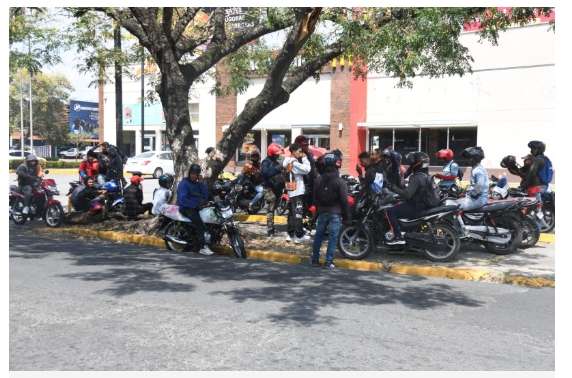Uber Drivers in the Dominican Republic Protest 45% Commission Rate.
The simmering discontent among Uber drivers in the Dominican Republic has reached a boiling point, prompting calls for government intervention to address a litany of grievances against the ride-hailing giant. Drivers allege a pattern of unfair practices, including unexplained account closures, persistent payment issues, and system malfunctions that directly impact their livelihoods. A central demand revolves around transparency in fare calculations, with drivers seeking clarity on the breakdown of payments per kilometer and trip time. They suspect that the current system obscures the true distribution of earnings, leaving them with an unfairly small portion of the fare. This lack of transparency fuels distrust and exacerbates the financial strain on drivers struggling to make ends meet. The drivers believe that governmental oversight is essential to ensure fair compensation and protect them from exploitative practices.
Adding to their concerns are the challenges surrounding ancillary services like supermarket shopping, where drivers seek better management and support from Uber. They also highlight issues with airport trip verification, pointing to fraudulent activities that erode their earnings and create an uneven playing field. A particularly contentious issue is Uber’s commission structure, with drivers claiming that in certain instances, the company takes up to 45% of the fare, leaving them with a meager sum after expenses. This high commission rate, coupled with opaque fare calculations, raises serious questions about the sustainability of driving for Uber in the Dominican Republic. The drivers argue that such a significant cut undermines their ability to earn a decent living and puts undue financial pressure on them.
The drivers’ frustration recently culminated in a direct confrontation with Uber representatives at the company’s local offices. While Uber requested a 10-day period to respond to their concerns, drivers remain skeptical and are actively pushing for government regulations to protect their rights and establish a framework for fair competition within the ride-hailing industry. They believe that government intervention is not just desirable but necessary to level the playing field and ensure that foreign companies like Uber operate ethically and transparently within the Dominican Republic. This push for regulation underscores the drivers’ determination to secure a sustainable future for themselves and their families.
Ironically, these tensions arise against the backdrop of Uber’s expansion in the Dominican Republic, particularly in lucrative tourist destinations. Uber Select’s recent growth into areas like San Pedro de Macorís, Juan Dolio, Boca Chica, and Punta Cana highlights the company’s strategic focus on the tourist market. This expansion, facilitated through partnerships with local taxi driver associations such as CODOTATUR, Caña Tours SRL, Sichotratur, and Sitratubochza, aims to tap into the higher earning potential associated with tourist clientele, who are often more generous with tips. While this expansion creates opportunities for more drivers to join the platform, the existing drivers’ concerns underscore the inherent contradictions between Uber’s growth strategy and its treatment of its workforce.
The underlying issue lies in the perceived imbalance of power between Uber and its drivers. The drivers, often reliant on the platform for their income, feel vulnerable to Uber’s policies and practices, which they perceive as arbitrary and exploitative. The lucrative tourist market, with its potential for higher earnings, becomes a double-edged sword. While it attracts drivers hoping for better income, it also makes them more susceptible to exploitation, as Uber capitalizes on the high demand and potentially higher fares. This dynamic creates a system where drivers are caught in a precarious position, dependent on a platform that they feel does not prioritize their well-being.
This is not an isolated incident; Uber drivers in the Dominican Republic have voiced similar complaints in the past. Earlier this year, drivers protested against a practice where customer discounts were deducted from their earnings rather than being absorbed by the company. This practice, coupled with rising fuel costs, left drivers struggling to cover their expenses, let alone earn a living wage. The recurring nature of these disputes highlights a systemic problem within Uber’s operational model and reinforces the drivers’ calls for greater regulation and oversight. Their demands for transparency, fair compensation, and a voice in the decisions that affect their livelihoods represent a broader struggle for worker rights in the gig economy.
Share this content:












Post Comment